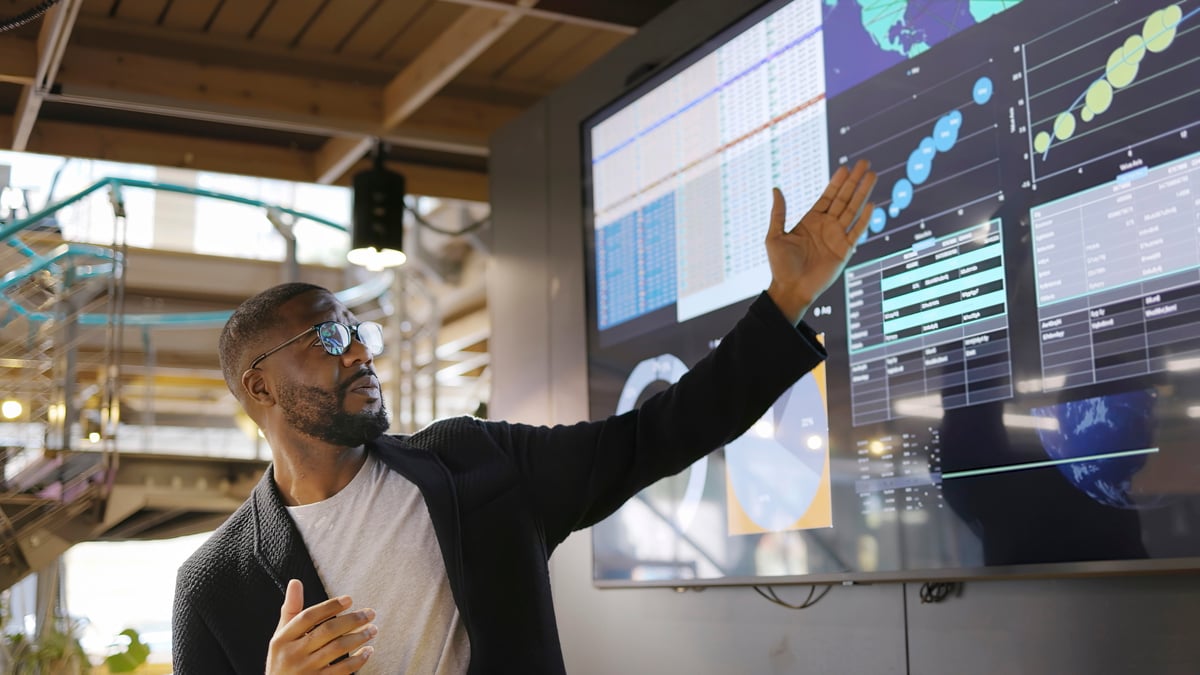Have you ever heard of the "Mgnfcent Seven" stocks? Of course not. There's no such thing. But you might have picked up on where I'm going. You can't spell "Magnificent Seven" stocks without AI (artificial intelligence).
More importantly, none of the members of this elite group of stocks would be nearly as attractive to investors without their AI-related growth prospects. Which is the best AI pick among the so-called Magnificent Seven right now? Here are three arguments in support of Meta Platforms (META 0.88%).

Image source: Getty Images.
1. Already seeing solid ROI on its AI initiatives
Importantly, Meta is already seeing a solid return on investment (ROI) on its AI initiatives. For example, in the company's second-quarter update, CEO Mark Zuckerberg mentioned some recent improvements to Meta's AI-powered recommendation model to show people content they like. He said the changes "have improved quality so much that it has led to a 5% increase in time spent on Facebook and 6% on Instagram just this quarter."
More users spending more time on Meta's top social media apps is likely to attract more advertisers. But Zuckerberg highlighted an even more tangible way that AI is delivering ROI for the company. Changes to Meta's recommendation model boosted ad conversions in Q2 by roughly 5% on Instagram and by 3% on Facebook.
Zuckerberg also revealed that "a meaningful percent" of Meta's ad revenue is now coming from advertisers using the company's generative AI capabilities. These genAI features should especially appeal to smaller advertisers who can't afford to spend as much on their marketing campaigns.
Perhaps the clearest sign of the positive ROI Meta is enjoying from its AI initiatives is the company's plan to invest even more. CFO Susan Li said in the Q2 call, "We continue to see very compelling returns from our AI capacity investments in our core ads and organic engagement initiatives, and expect to continue investing significantly there in 2026."

NASDAQ: META
Key Data Points
2. The leader in AI glasses
What's the next big thing in AI? It just might be AI glasses. These devices can see everything a person wearing them sees. They can hear everything the person hears. There's arguably no better way to integrate AI into every aspect of daily life. And Meta has already established itself as the market leader in AI glasses.
Sales of the company's Ray-Ban Meta glasses continue to soar and accelerated in Q2. Even with Meta ramping up production earlier this year, it still can't make enough of the AI glasses to meet customer demand. The new Oakley Meta HSTN performance AI glasses have the makings of another huge commercial success.
Meta's Orion prototype showed the potential for true augmented reality embedded into glasses. The company will probably incorporate similar technology into its AI glasses products in the not-too-distant future. Zuckerberg hinted in the Q2 call, though, that a smaller display that shows limited information without the full augmented reality (AR) capabilities might come first.
3. A superintelligence lottery ticket
Last, but not least, Meta offers investors something like an AI lottery ticket with its investment in superintelligence. While several companies are scrambling to develop artificial general intelligence (AGI) technology that can match humans, Zuckerberg wants Meta to lead the way in making superintelligence that's smarter than humans a reality.
The company is taking its superintelligence efforts quite seriously. It's investing heavily in bringing the most accomplished AI experts into the fold. Zuckerberg said in the Q2 earnings call that he views "small talent-dense teams to be the optimal configuration for driving frontier research."
What are the odds that this lottery ticket pays off? It's hard to say. However, Zuckerberg recently shared a letter outlining his vision for these efforts that said, "[D]eveloping superintelligence is now in sight." He told analysts in the Q2 call, "[W]e think that this [superintelligence] is going to really shape all of our systems sooner rather than later, not necessarily on the trajectory of a quarter or two, but on the trajectory of a few years."
If Meta achieves Zuckerberg's goal and is the first to market with superintelligence technology, the company will almost certainly grow much larger than its current market cap of a little under $2 trillion. And if that happens, Meta will probably be the biggest AI winner in the Magnificent Seven.





